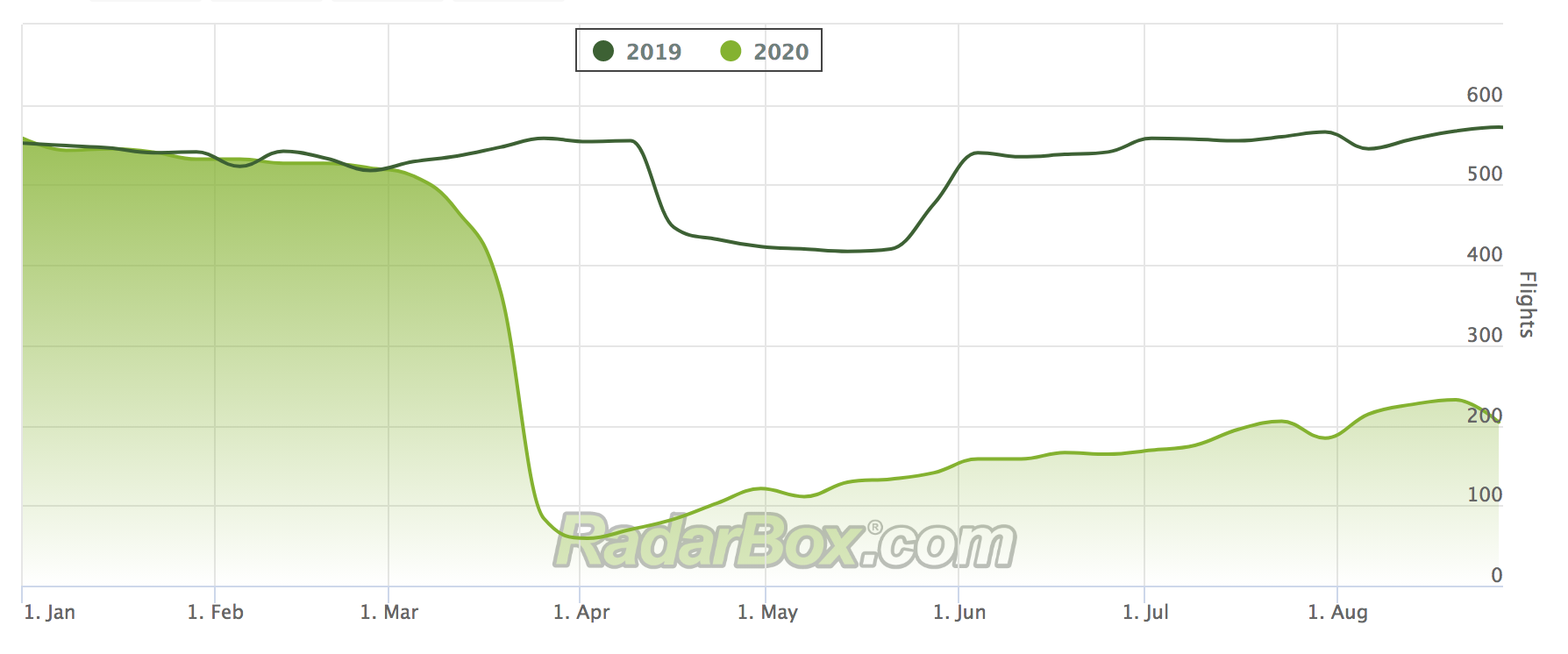UAE-Israel Deal Promises to Revolutionize Middle East Aviation
A historic first is on the horizon in the Middle East, as Israel prepares for its first-ever commercial flight between Tel Aviv and Abu Dhabi. This inaugural event will occur next week, after the two countries entered into a normalization agreement. It is hoped that this first flight will merely be the first of many.
Diplomatic trip
The agreement has both economic and political significance. Officials from the United States and Israel are expected to participate in this historical process, with the flight likely to be on Israel’s flag carrier, El Al. Jared Kushner, national security advisor, Robert O’Brien, Mideast envoy Avi Berkowitz, and envoy for Iran, Brian Hook, are all expected to be part of the US delegation.
In short, this first commercial flight won't be particularly commercial! Security will be at a premium, and the primary purpose of the initial run will be simply symbolic. But the flight will pave the way for more air traffic between the two countries, and potentially an improved diplomatic relationship.
However, the road ahead may not be as clear as the two parties would hope. Saudi Arabia has yet to officially offer its support to the agreement, which poses a logistical problem. It is not even known yet whether the Saudis will be willing to open their airspace for El Al to operate this flight. If this permission isn't granted, then a much more indirect course over Yemen and Oman, via Abu Dhabi, will need to be taken.
Commercial viability
Naturally, if this persisted then it would massively impact on the commercial viability of the route. While we can expect a pivoting to ultra long-haul flights in the post-Covid environment, such operations will need to be run efficiently. Massive detours and non-direct routes are definitely not on the agenda.
Reports indicate that El Al is planning to use its top-of-the-range Boeing 787 for the trip, and there is still huge optimism that everything will unfold smoothly, opening up huge commercial opportunities in the region. The normalization of ties between the UAE and Israel offers the potential for tourism and business activities; naturally, something that both countries would wholeheartedly welcome, particularly in the current economic climate.
The UAE will be particularly keen to cement this new relationship and agreement, as it will surely be the larger beneficiary of the two. It's easy to anticipate a benefit for the iconic Dubai in terms of tourism and revenue, which will be extremely welcome following the Covid-19 crisis.
While the UAE and its airlines will gain, other countries and carriers in the region may experience a detrimental impact. For example, analysts believe that Qatar Airways will view the arrangement as a setback, and Qatar is highly unlikely to establish any diplomatic relations with Israel in the foreseeable future.
Meanwhile, the UAE’s biggest carriers – Emirates and Etihad – have a potentially massive opportunity to feed Israeli passengers through airport hubs in Dubai and Abu Dhabi. This could particularly benefit Dubai Airport, whose traffic collapsed during the peak of the Covid pandemic.
(Above: Flight data for Dubai International Airport)
Emirates has also been hard hit, as the world’s largest long-haul airline. Its business model has historically been built around large airliners, which jet people all over the globe. This has effectively ground to a halt during the Covid crisis, reducing Emirates to a shadow of its former self.

(Above: Emirates flight data for 2020)
Further agreements
Although the diplomatic situation in the Middle East may be delicate, the US and Israel still expect several other Arab nations to follow the example of the UAE imminently. This may happen sooner rather than later if Saudi airspace can be opened up, particularly as the Israeli flag carrier El Al was grounded because of the coronavirus. This new agreement represents a chink of light for what has been a decimated carrier.
With around 2 million passengers anticipated between Tel Aviv and Asia in a normal year, this new market will be highly valuable to the Middle East. The agreement is a positive step, after decades of diplomatic enmity between the two nations, and could herald a new era for Middle East aviation. This could hardly be more timely considering the inevitable economic challenges that airlines and airports in the region now face.
READ NEXT...
 78492
78492Tracking Helicopters With RadarBox
Today we'll explore how to filter and track helicopters on RadarBox.com. Read this blog post to learn more...- 30334
AirNav Announces Coronavirus Related Data & Graphics Available
AirNav Systems is providing data COVID-19 air traffic related data for analysis, study and use.  21769
21769Replay Past Flights with Playback
AirNav RadarBox officially launches the playback function on RadarBox.com, allowing users to replay the air traffic for a specific date and time in the past, within a 365-day period. Read our blog post to learn more about this feature.
